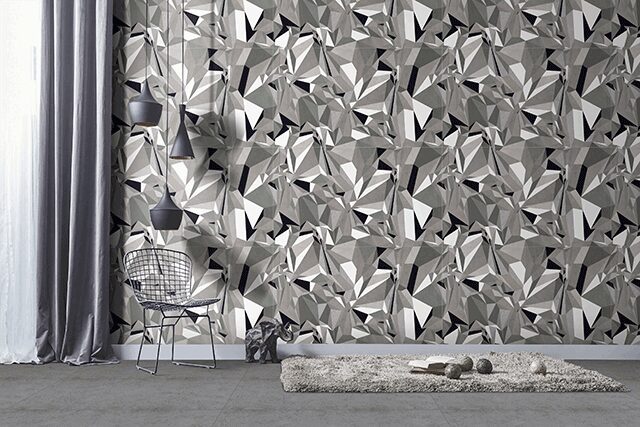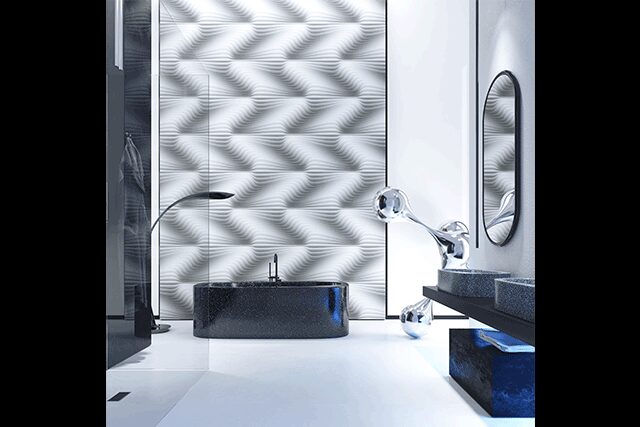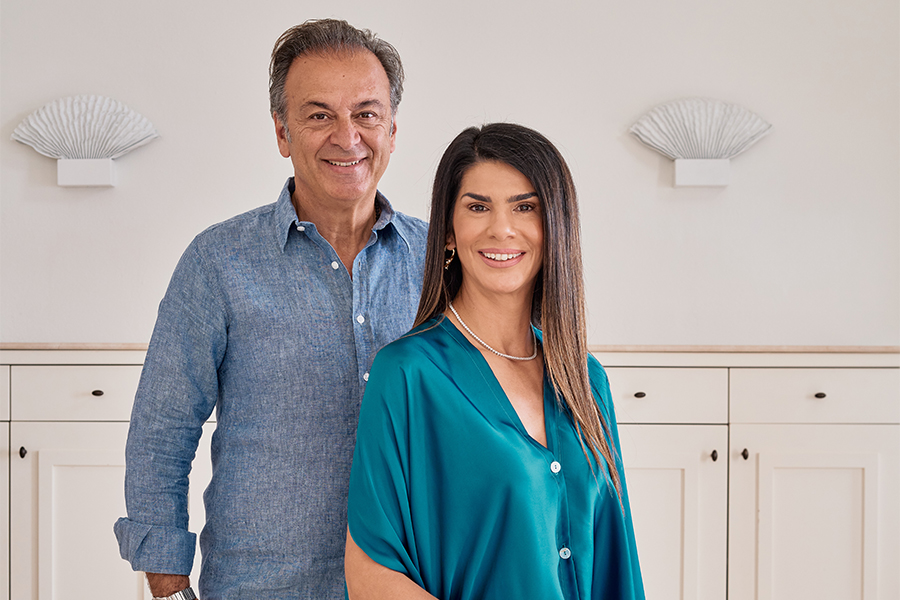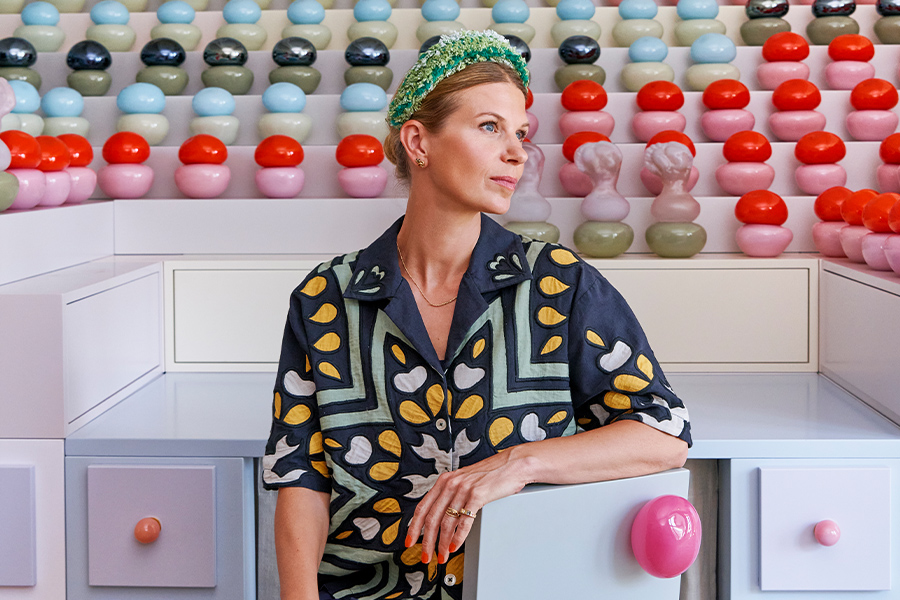Karim Rashid realized his destiny was in design at age 5 while sketching churches in London with his father, who was a set designer for film and TV, as well as a furniture maker and painter. “He taught me that I could design anything and touch all aspects of our physical landscape,” he says. Looking at the breadth of products, interiors, graphics, fashion, and many other categories within Rashid’s rich portfolio of work, his father’s influence would end up defining his career.
Born in Cairo, the globetrotting Rashid spent time in Rome and London before his family settled in Montreal. He studied industrial design in school in Ottawa and spent some of his post-grad years in Milan. “That experience made me realize I wanted to design poetic, artistic, and functional everyday objects,” he says. Yet his first gig at a Toronto design office was far from his dream job. Instead of crafting transcendent products, he was making medical equipment, power tools, and snow shovels.
A fateful move to New York in 1992 set his career in motion. He launched his own firm in a rundown loft with no kitchen or bathroom, and despite being penniless, he would draw objects, “romanticizing about the beautiful world I always wanted to shape,” he says. In those early days, he heard a lot of nos. In fact, out of the 100 companies he approached, only one said yes.
His first collection was a series of tabletop objects for Nambé, followed by a chair and waste basket for Umbra. “They continue to sell millions—it proved to me that Americans want design, but at an affordable price,” he says. “The big challenge is to create something that, although accessible to all consumers, touches people’s lives and gives them some sense of an elevated experience.”
Among his most recent works is Heartbeat, a modular seating arrangement for lobbies and public spaces designed “as a pulsating, alive respite to stagnation,” he says. It fits into a hyper-modern personal aesthetic he calls sensual minimalism. “[I am inspired to] make forms as sensual, human, evocative, and sculptural as possible, but through new shapes that were historically impossible to make [without digital tools].”
Beyond products, Rashid has lent his talents to interiors, designing for European budget brand Prizeotel and Temptation Resort Cancun, among others. But his passion still lies in bringing beauty on a smaller scale. “On average, we touch around 600 objects a day,” he says. “There is so much potential to bring pleasure to our everyday lives.”
Photography by Lupe de la Vallina and courtesy of Karim Rashid




